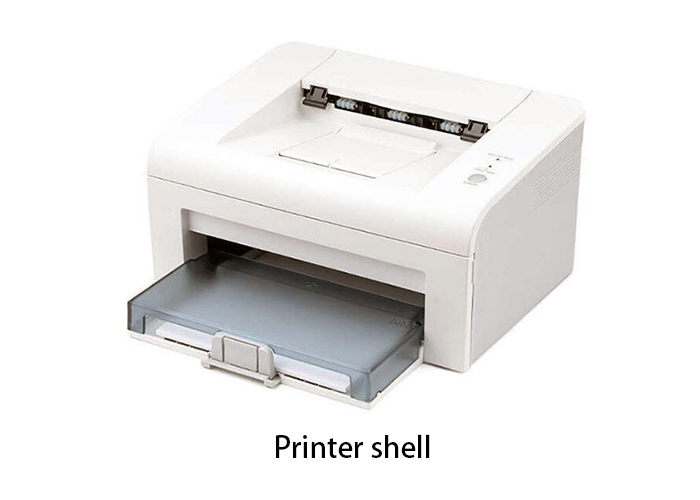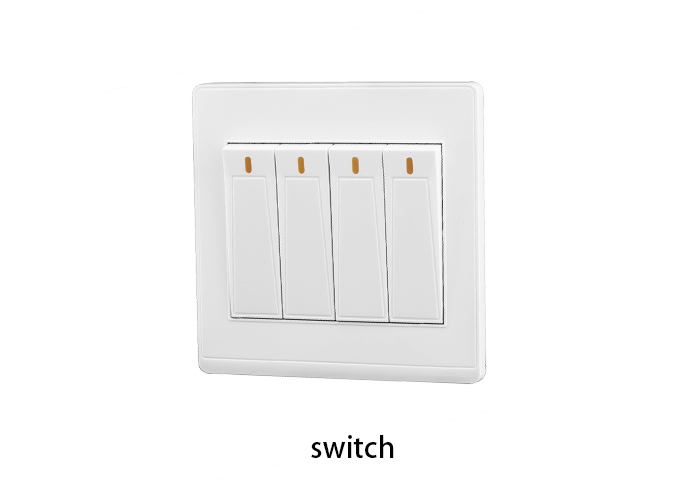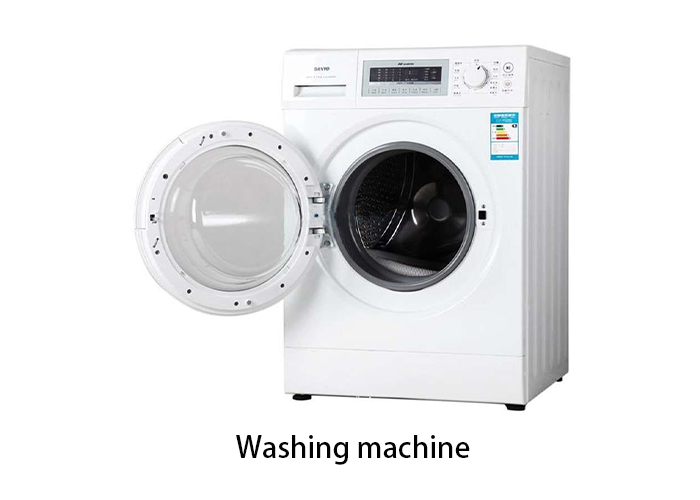
ABS engineering plastic is PC+ABS (engineering plastic alloy), the reason why it is named PC+ABS is because this material not only has the excellent heat and weather resistance, dimensional stability and impact resistance of PC resin, but also has the excellent performance of ABS resin. processing fluidity. Therefore, when applied to thin-walled and complex-shaped products, it can maintain its excellent performance and maintain the formability of plastics and a material composed of an ester. The biggest disadvantage of ABS engineering plastics is their heavy weight and poor thermal conductivity. Its molding temperature is taken from the temperature between the two raw materials, which is 240--265 degrees. If the temperature is too high, ABS will decompose, and if the temperature is too low, the fluidity of PC material will be poor.
1. General performance
The appearance of ABS engineering plastics is opaque and ivory-colored pellets, and its products can be painted in colorful and have high gloss. The relative density of ABS is about 1.05, and the water absorption rate is low. ABS has good combination with other materials and is easy to surface printing, coating and plating. The oxygen index of ABS is 18~20. It is a flammable polymer with a yellow flame, black smoke and a special cinnamon smell.
2. Mechanical properties
ABS has excellent mechanical properties, its impact strength is excellent, and can be used at extremely low temperatures: ABS has excellent wear resistance, good dimensional stability, and oil resistance, and can be used for bearings under medium loads and speeds. The creep resistance of ABS is larger than that of PSF and PC, but smaller than that of PA and POM. The flexural strength and compressive strength of ABS are the poorest among plastics. The mechanical properties of ABS are greatly affected by temperature.
3. Thermal properties
The heat distortion temperature of ABS is 93~118°C, and the product can be increased by about 10°C after annealing. ABS can still show a little toughness at -40°C, and can be used in the temperature range of -40~100°C.
4. Electrical properties
ABS has good electrical insulation and is hardly affected by temperature, humidity and frequency, so it can be used in most environments.
5. Environmental performance
ABS is not affected by water, inorganic salts, alkalis and various acids, but it is soluble in ketones, aldehydes and chlorinated hydrocarbons, and it will cause stress cracking when it is corroded by glacial acetic acid and vegetable oil. The weather resistance of ABS is poor, and it is easy to degrade under the action of ultraviolet light; after half a year outdoors, the impact strength drops by half.
application
1. Automotive interior and exterior decoration: instrument panel, decorative pillar, instrument bezel, grille, interior and exterior trim
2. Business equipment casings and built-in components: notebook/desktop computers, copiers, printers, plotters, monitors
3. Phone case, accessories and smart card (SIM card)
4. Electrical products, electronic product casings, electric meter covers and casings, household switches, plugs and sockets, cable and wire conduits
5. Household appliances, such as washing machines, hair dryers, microwave ovens and internal and external parts
|
Physical Properties |
Metric |
English |
|
Density |
1.14 g/cc |
0.0412 lb/in³ |
|
Linear Mold Shrinkage, Flow |
0.0060 cm/cm |
0.0060 in/in |
|
Melt Flow |
1.3 g/10 min |
1.3 g/10 min |
|
Mechanical Properties |
Metric |
English |
|
Tensile Strength, Yield |
51.7 MPa |
7500 psi |
|
Elongation at Break |
80 % |
80 % |
|
Flexural Yield Strength |
82.7 MPa |
12000 psi |
|
Flexural Modulus |
2.24 GPa |
325 ksi |
|
Izod Impact, Notched |
4.80 J/cm |
8.99 ft-lb/in |
|
|
6.40 J/cm |
12.0 ft-lb/in |
|
Dart Drop, Total Energy |
54.2 J |
40.0 ft-lb |
|
|
59.9 J |
44.2 ft-lb |
|
Thermal Properties |
Metric |
English |
|
CTE, linear, Parallel to Flow |
72.0 µm/m-°C |
40.0 µin/in-°F |
|
Specific Heat Capacity |
1.98 J/g-°C |
0.473 BTU/lb-°F |
|
Thermal Conductivity |
0.260 W/m-K |
1.80 BTU-in/hr-ft²-°F |
|
Deflection Temperature at 0.46 MPa (66 psi) |
124 °C |
255 °F |
|
Deflection Temperature at 1.8 MPa (264 psi) |
107 °C |
225 °F |
Application range:



Name: Jerry Meng
Mobile:+86 18657312116
Tel:+86 0573-82822319
Whatsapp:+86-18657312116
Email:jerry@fulltrustplastic.com
Add:No. 100 Zhuyuan Road, Jiaxing, China